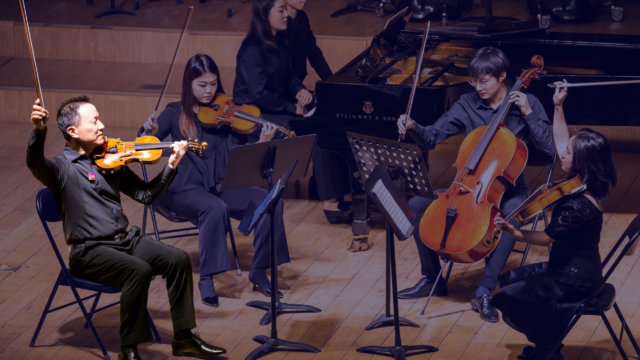Youth Engagement – Chapter 3: Mental Health

“As inspiring as working with youth can be, we also need to understand how great a responsibility it is,” says Caen Thomason-Redus, Vice President for Inclusion and Learning at the League. “We cannot assume that all our efforts have their intended effect. Part of our work is to learn and apply things like trauma-informed practices, and devote the resources needed to answer the question, ‘what difference are we making in this young person’s life?’ This is the only way we can achieve our goal of making music a positive force for all youth.”
The COVID-19 pandemic’s isolation, intentionally addictive social media, and the climate crisis are only the most glaring contributors to what the Surgeon General has identified as a growing national concern: youth mental health. Programs that center youth creativity and build youth agency can help students cope in healthy ways and flourish despite their challenges. But encouraging students to express themselves musically can also lead to painful revelations, and trauma-informed approaches to youth engagement must be in place if youth-serving organizations are to avoid inadvertently causing further harm. The Detroit Symphony Orchestra is so far an outlier in having hired a licensed social worker on staff who can help deal with crisis situations and find ways to support the whole child.
Training in trauma-informed practice is available from a variety of educational organizations. As more orchestras move into high-impact, student-centered work like the examples in Chapter 2, it is critical they ensure their staff and teaching artists have both the skills and resources to keep their students safe from re-traumatization and to deal appropriately with situations that arise.
Photo: Students creating art projects with Pacific Symphony’s Visual Art Spotlight. Credit: Adam Kirchoff
Related
-
Learn | Education & Community Engagement
Education and Community Engagement and Youth Orchestra Survey 2025
-
News | Advocacy
Policy Action Ahead as Congress Returns to DC
Become a member
Thank you for your interest in the League of American Orchestras! We are dedicated to advancing the orchestral experience for all.
Join Now